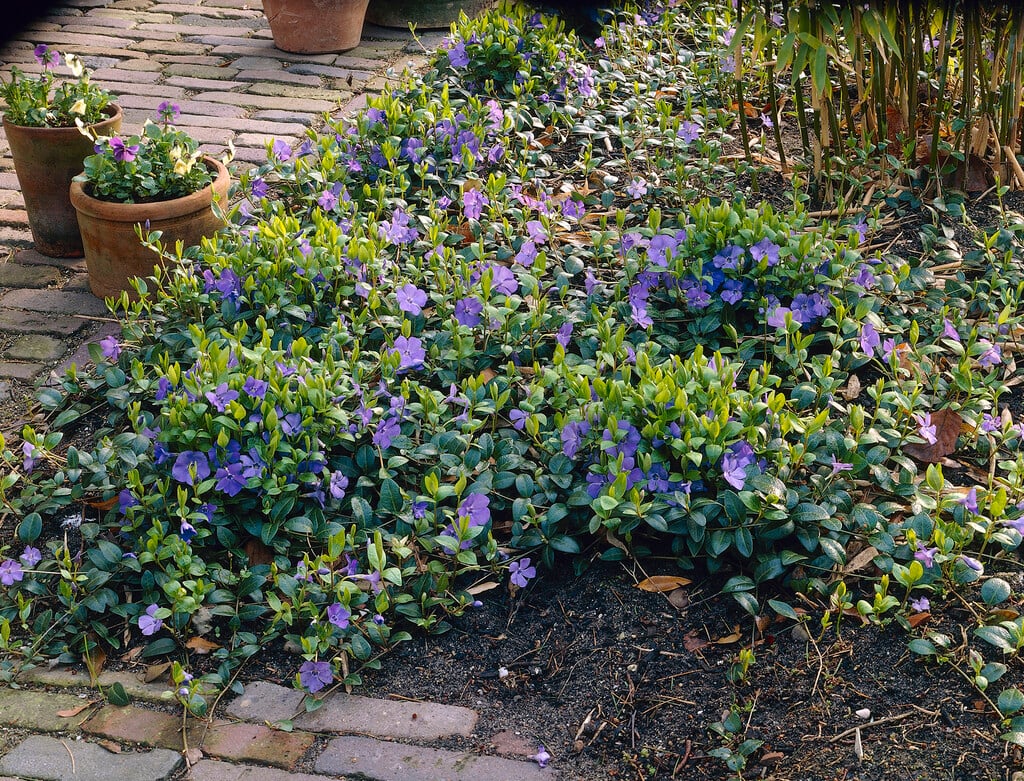Vinca minor
lesser periwinkle
A mat-forming evergreen shrub with trailing, rooting shoots and opposite pairs of glossy, dark green leaves. From mid-spring to late summer it produces violet-blue flowers to 3cm across
Size
Ultimate height
0.1–0.5 metresTime to ultimate height
2–5 yearsUltimate spread
1–1.5 metresGrowing conditions
Moisture
Moist but well–drainedpH
Acid, Alkaline, NeutralColour & scent
| Stem | Flower | Foliage | Fruit | |
| Spring | Blue Purple | Green | ||
|---|---|---|---|---|
| Summer | Blue Purple | Green | ||
| Autumn | Green | |||
| Winter | Green |
Position
- Full shade
- Full sun
- Partial shade
Aspect
West–facing or East–facing or South–facing or North–facing
Exposure
Exposed or Sheltered Hardiness
H6Botanical details
- Family
- Apocynaceae
- Native to GB / Ireland
- Yes
- Foliage
- Evergreen
- Habit
- Matforming
- Genus
Vinca can be evergreen subshrubs or herbaceous perennials, with simple, paired leaves and solitary, 5-lobed, salver-shaped flowers in the leaf axils
- Name status
Correct
- Plant range
- Europe, S. Russia, N. Caucasus
How to grow
Cultivation
Grow in any but very dry soil, in full sun (for best flowering) to partial shade. May have the potential to become a nuisance if not managed well
Propagation
Suggested planting locations and garden types
- Cottage and informal garden
- Patio and container plants
- Banks and slopes
- Flower borders and beds
- Ground cover
- Underplanting of roses and shrubs
Pruning
To restrict growth, cut back hard in early spring
Pests
Generally pest-free
Diseases
May be susceptible to rust diseases
Get involved
The Royal Horticultural Society is the UK’s leading gardening charity. We aim to enrich everyone’s life through plants, and make the UK a greener and more beautiful place.
